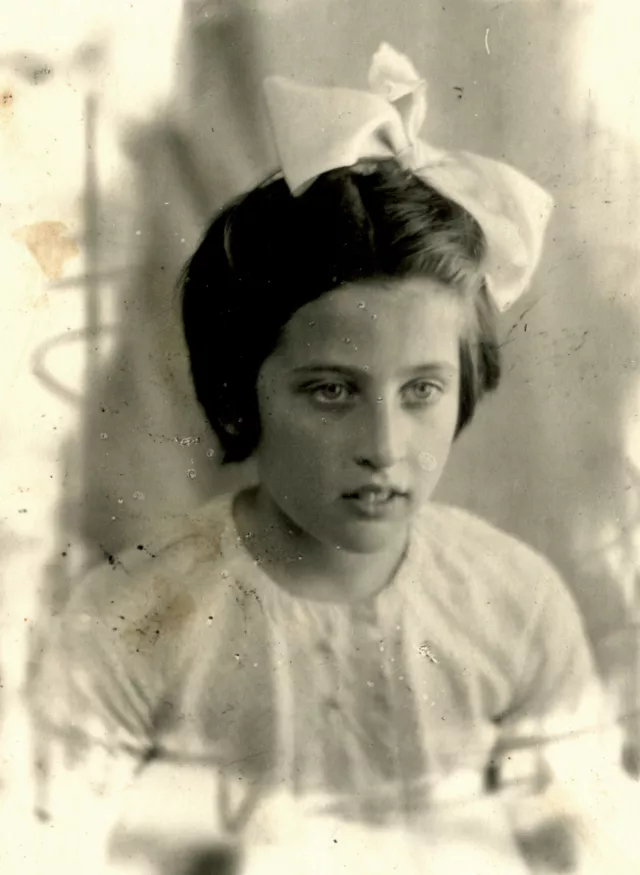Ludmila Pavlovskaya
I, Ludmila Pavlovskaya during evacuation in Stalingrad in 1943.
We stayed in Stalinsk in 1941 (Novokuznetsk at present), Kemerovo region in Siberia, about 2500 km from Kiev. My parents went to work at the metallurgical plant producing steel for tanks. My father was production engineer and my mother worked at the plant training school.
We lived in a small room in a 3-storied dull gray building in Stalinsk. There was one kitchen and one bathroom on each floor. Each family had its own primus stove in the kitchen. There were few trees in the yard where children played. I went to the kindergarten in Stalinsk. We didn't have enough food. I remember the delicacy of that time: my mother washed potato peels and made potato pancakes. Food was distributed per cards. We received bread, peas and some cereals. We didn't get any meat, butter or sweets.
When winter came my father obtained a card to get one pair of boots and a quilted jacket. That was all we had. We wore these clothes in turn.
In 1943 the Soviet army liberated Stalingrad. My father was sent to do reconstruction and we all moved to Stalingrad. My father worked at the "Krasny Oktiabr" metallurgical plant that manufactured something for the military and was involved in the reconstruction of Stalingrad. The city was all ruined.
At first we lived in a dugout in Stalingrad. We fetched water from the Volga. The water was contaminated with oil and it was impossible to drink it. Later we received two rooms in the barrack for the workers of the plant. We were living in one room and kept some junk in another. We were used to huddling together and couldn't imagine why we might need another room.
In Stalingrad I went to a Russian secondary school. Children went to school at 8 and I only turned 7 in 1943, but I was well prepared for school: I could read and count. I was admitted on condition that if I failed they would expel me. I studied well. Our teacher Galina Alexandrovna Buzina was a young woman, but she seemed old to me. When she needed to go out she gave me a book and I read it in front of the class. I don't know whether there were Jewish children in our school. Nationality didn't matter to us. This issue became significant when we returned to Kiev.
There was a concert hall at the plant and there was a piano on the stage. One of the evacuated women was a music teacher. She formed a music class and auditioned children for it. I was admitted. She taught us music and we played our drills on the piano. In half a year I completed the program of two years at the music school. My teacher called my mother to tell he that I had talent and had to continue my studies. But my parents couldn't afford it.
My father got a job assignment in Kiev and we returned in 1946. We could hardly make ends meet and music studies were just out of the question. But I always loved music.














